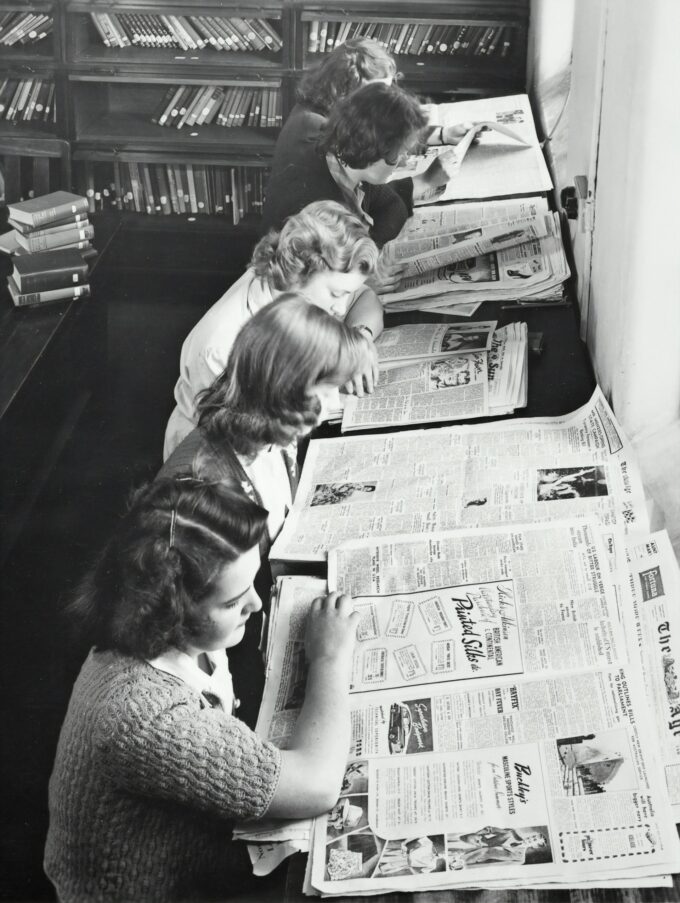
Key Takeaways:
- Historical newspapers are a valuable resource for tracing genealogy and understanding the societal context of our ancestors’ lives.
- Modern digital tools and techniques are vital for deciphering and comprehensively researching old newspaper archives.
- Despite common research challenges, newspapers offer rich details beyond basic historical facts, providing depth to family histories.
- Technology has significantly improved access to newspaper archives, allowing genealogists to conduct and manage research efficiently.
Table of Contents:
- Introduction to Genealogy and Historical Newspapers
- The Value of Newspaper Archives in Tracing Ancestry
- Step by Step: Getting Started with Newspaper Genealogy
- Deciphering Old Newspapers: Techniques and Tools
- Overcoming Common Challenges in Newspaper Archives Research
- Beyond Basic Facts: Reading Between the Lines
- Connecting with Historical Events through Newspapers
- Case Studies: Success Stories in Newspaper Genealogy
- Leveraging Technology in Newspaper Archive Research
- Concluding Reflections on the Role of Historical Newspapers in Understanding Our Roots
Introduction to Genealogy and Historical Newspapers
The quest to understand one’s lineage is as fascinating as it is rewarding, taking us through the corridors of time to connect with our ancestors. Newspaper archives are among the premier sources for this exploration, offering historical insights and personal stories that may need to be captured in official records. A deep dive into a newspaper archive search reveals life’s everyday aspects from yesteryears—social engagements, local news, and even adverts—that together, weave a comprehensive tapestry of our familial past. These archives act as a diary of social history, encapsulating the emotions, the drama, and the evolution of communities over generations.
The Value of Newspaper Archives in Tracing Ancestry
For genealogists, newspapers are akin to a time machine, providing a snapshot of life at the time our forebearers lived. Marriage announcements elaborate on family ties and social standings, while obituaries can fill in vital information and eulogize the deceased, highlighting their roles and relationships within the community. Through these subtle narratives, we gather more than just facts; we glean an understanding of the persona behind the name. Fashions, colloquialisms, and the local vernacular found in print provide a rich cultural backdrop, offering clues to the kind of lives our ancestors led and the legacies they left behind.
Step by Step: Getting Started with Newspaper Genealogy
Embarking on newspaper-based genealogy necessitates a strategy that begins with identifying relevant publications from specific eras and locales of your ancestors. This means delving into the history of local media, which sometimes involves consulting local libraries or historical societies for records of past newspapers. Once the right publication is found, the painstaking task of combing through archival pages begins. However, the endeavor is far from a shot in the dark; systematic searching, perhaps starting from a known significant date in your family’s history, such as an immigration or a marriage, can yield substantial leads and potentially even an ancestral jackpot.
Deciphering Old Newspapers: Techniques and Tools
Reading and understanding old newspapers can be quite challenging due to historical language, stylistic differences, and deterioration in physical quality. Thankfully, advancements in digital technology have provided genealogists with enhanced tools to improve access and interpretation. Digitization of archives has preserved the content and made it searchable—an invaluable benefit for researchers. Moreover, software solutions can transcribe archaic fonts and scripts, turning them into readable text. This technological assistance makes perusing old newspapers less daunting and more fruitful.
Overcoming Common Challenges in Newspaper Archives Research
Research in newspaper archives often comes with its set of challenges. Records may need to be completed due to lost issues, or reporting from specific periods may include biased perspectives that require careful evaluation. A genealogist must implement a cross-referential approach to address these issues, drawing from multiple sources to validate the information. Despite these challenges, archives offer avenues for rich insights into local events and personal stories that bring texture to one’s family history and may provide missing links that official records do not capture.
Beyond Basic Facts: Reading Between the Lines
At times, the seemingly mundane details in newspaper archives offer the most significant genealogical value. Advertisements can point to the businesses that ancestors owned or frequented, giving a sense of their daily interactions and socio-economic status. Social columns often extend beyond wedding and birth announcements, with details on community involvement, relationships, and travels. Furthermore, letters to the editor, political endorsements, and opinion pieces can give voice to our ancestors’ perspectives and contributions to public discourse, enriching our knowledge of their character and viewpoints.
Connecting with Historical Events through Newspapers
Newspaper archives are not just records of personal histories but are also chroniclers of the social and political environment of the time. By tracing the events reported in newspapers, researchers can place ancestors within the larger context of history, seeing how they may have been affected by or even influenced by significant events—from wars and economic downturns to social reforms and cultural revolutions. This broader perspective can be particularly enlightening when it uncovers connections between family history and prominent historical narratives.
Case Studies: Success Stories in Newspaper Genealogy
Many inspirational stories within the genealogy community showcase the breakthroughs facilitated by newspaper research. A single obituary, for example, can solve decades-long mysteries or reconnect estranged branches of a family tree. It’s not just personal victories; academia, too, has acknowledged significant anthropological and historical finds attributed to diligent newspaper research. These success stories motivate both novices and veterans in the field of genealogy, underscoring the potential of newspapers as a profound source of discovery.
Leveraging Technology in Newspaper Archive Research
Modern-day genealogists have various digital resources that have redefined research in the field. Comprehensive databases and online portals have democratized access to vast collections of newspaper archives. Software tools help organize findings, platforms allow for sharing with peers, and advanced search algorithms enable the swift location of relevant passages, transforming the tedious process of old into an orderly and engaging pursuit.
Concluding Reflections on the Role of Historical Newspapers in Understanding Our Roots
For those who embark on discovering their genealogy, the pursuit is often a profoundly moving experience that strengthens their sense of identity and belonging. Historical newspapers are indispensable in this exploration, serving as custodians of informative and emotionally resonant narratives. Uncovering details about our ancestors in the archived pages of newspapers can be transformative, allowing us to forge a bond with our heritage and carry forward the stories of those who laid the foundations of our present. It furnishes researchers with valuable strategies to maximize newspaper archives in their genealogical endeavors. As we continue to chart our roots, the silent whispers from yellowed pages are a profound reminder of where we come from and who we are.














